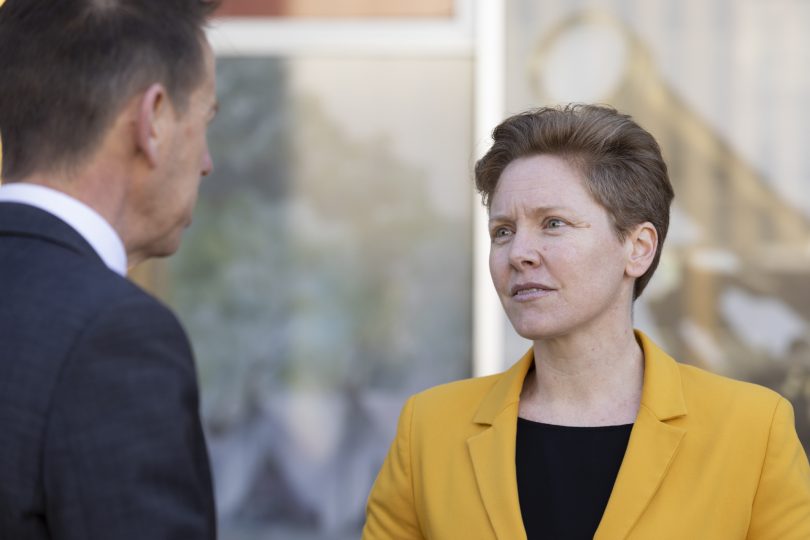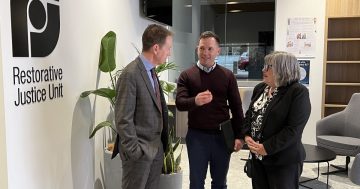
ACT Victims of Crime Commissioner Heidi Yates said victims’ voices should not be overlooked during the discussion on raising the age of criminal responsibility. Photo: Michelle Kroll.
Concerns have been raised about how changing the age of criminal responsibility would affect victims, as without charges being laid or some matters proceeding to court, some essential resources for victims would not be available.
Restorative justice practices in the ACT allow victims to talk about the impact the offence had on them and gives victims and offenders the opportunity to discuss the harm caused in a safe and carefully managed environment.
To participate in restorative justice programs, children and young people over the age of 10 who commit offences need to accept responsibility for the offence or less serious offences and not deny responsibility.
If no charges are laid, access to restorative justice may be impeded for both the victim and the offender. The victim may also be unable to access various schemes under the Charter of Rights for Victims of Crime if there is no offence.
Under the Charter, a victim is defined as someone who “has suffered harm, such as physical or mental injury or emotional suffering, pregnancy, economic loss, or substantial impairment of a person’s legal rights, because of an offence”.
As such, it could become harder for victims to access the Victims Services Scheme, which provides cultural, economic and social support and assistance to victims of crime.
The Victims of Crime Commissioner has some existing discretion to provide services to people who have experienced harm but do not meet the eligibility criteria.
Victim of Crimes Commissioner Heidi Yates said that while she was supportive of increasing the criminal age of responsibility from 10 to 14, it did not eliminate the fact some people are harmed by the actions of a child or young person.
Ms Yates sought reassurance from the government that any new laws would consider the needs and voices of victims in the ACT.
“This is a chance for victims to tell the government how victims’ rights can be upheld in these reforms, including how the government should recognise and support community members affected by the harmful behaviour of a child or young person,” she said.
Ms Yates said the government needed to look at alternative youth justice models through its push to reform the age of criminal responsibility, including what information, recognition and participation in the justice process should be afforded to victims.
“This will be critically important to recognise the harm caused to a victim and promote the accountability of the child or young person,” she said.
“This is a chance for victims to tell the government how victims’ rights can be upheld in these reforms, including how the government should recognise and support community members affected by the harmful behaviour of a child or young person.”
Attorney-General Shane Rattenbury recently released the government’s discussion paper on the issue and said it would look at “how we can provide therapeutic care and accommodation for young people, embed restorative approaches and support people who are impacted by harmful behaviours”.
The discussion paper, available on the YourSay website, is open for submissions and comments until Thursday, 5 August.





















